Home >Hardware Tutorial >Hardware News >Announced new AI strategy, OPPO wants to be the vanguard in the era of AI mobile phones
Announced new AI strategy, OPPO wants to be the vanguard in the era of AI mobile phones
- WBOYforward
- 2024-02-21 14:07:11600browse
Just after the Lunar New Year holiday, mobile phone manufacturers can’t wait to show their enterprising spirit in the field of AI.
Meizu announced with a high profile that “All In AI” will stop developing traditional smartphones. Xiaomi confirmed the release date of its new flagship Mi 14 Ultra and spent a lot of space on it. Promote AI-related functions. OPPO took the lead in holding its first offline press conference for the Lunar Year of the Dragon, explaining their AI strategic thinking.
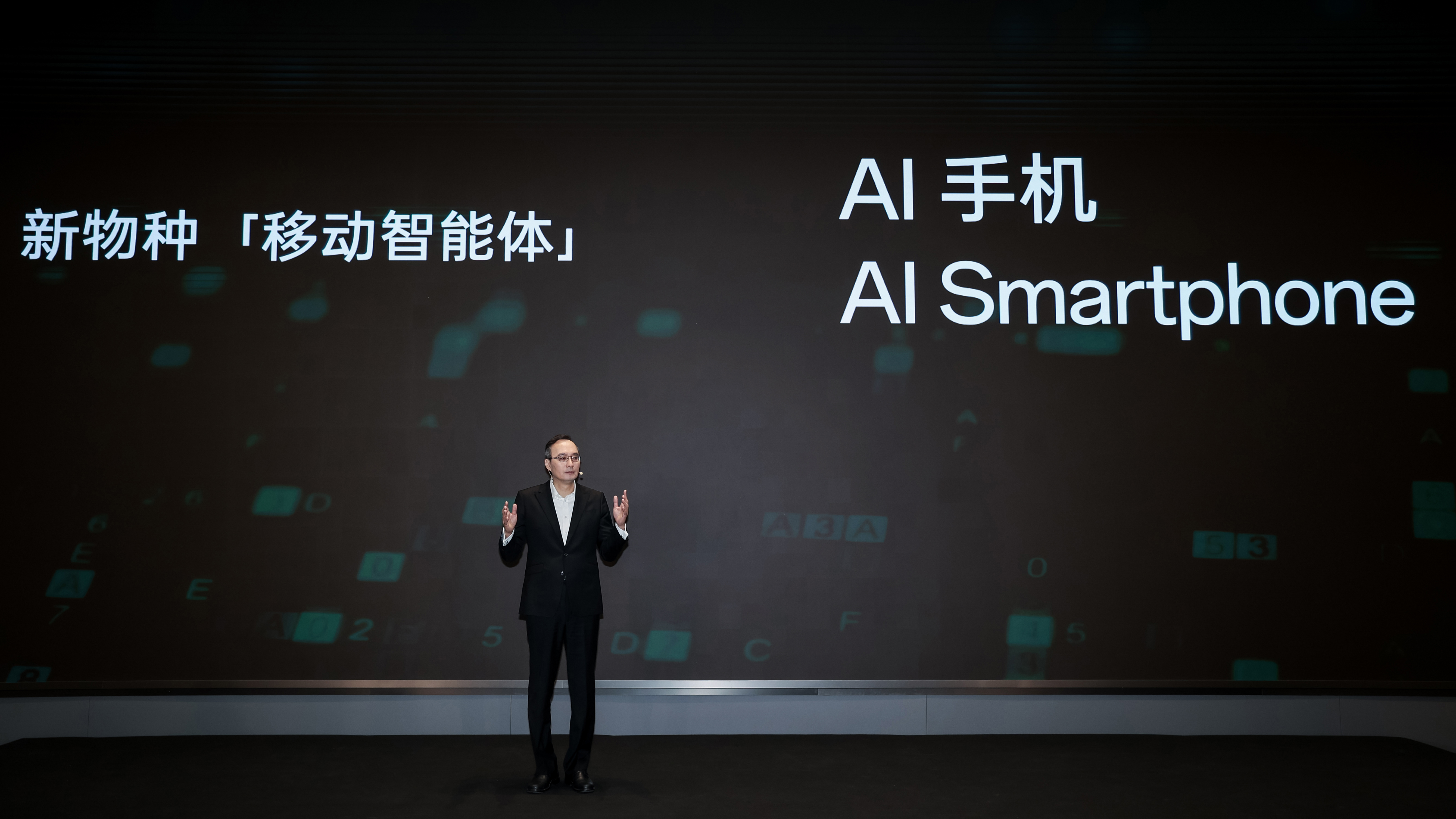
(Photo source: OPPO)
After the press conference During the group interview, Liu Zuohu admitted that for the industry, the concept of "AI mobile phone" is still in the 1.0 stage. It is still unknown what stage it will develop in the future and what disruptive capabilities will emerge. Because the industry's understanding of AI-integrated mobile phones and the definition of the concept of "AI mobile phones" are still controversial, OPPO hopes to contribute its own ideals and try to define "AI mobile phones".
#On the other hand, the definition of AI mobile phone is not OPPO’s alone. OPPO, together with MediaTek, IDC and other companies, released the industry’s first “AI Mobile Phone White Paper” ", can help us better understand AI phones; and OPPO's various actions hope to tell us that OPPO is ready to go all out at the next turning point in the development of smartphones.
What is a real “AI phone”?
Strictly speaking, the "AI phone" we are discussing now is a concept first proposed by OPPO. Although Meizu said All In AI, it did not say it would make an AI phone. As for Xiaomi and others Other manufacturers have not mentioned related concepts.
In general understanding, we may equate "AI mobile phone" with "mobile phone equipped with AI capabilities". If we follow the latter interpretation, the so-called "AI mobile phone" on the market There are too many “AI phones”. We can even go back seven or eight years. The first mobile phone that combined AI technology to improve voice assistant and camera can also be called an "AI mobile phone."
Obviously, OPPO wants to distinguish itself from these old-era "AI phones", and thus came up with the new concept of the so-called "AI phone".
In the AI strategy conference, OPPO focused on the four major characteristics of AI mobile phones, which can be summarized as follows.

(Photo source: OPPO)
First of all, it must be effective To make use of computing resources, it is necessary to have hardware computing power that can satisfy large model calculations; second, the AI mobile phone must be able to perceive the world and capture relevant information about the user and the environment; third, the AI mobile phone must have self-learning capabilities and continuous optimization; fourth, AI mobile phones have native creative capabilities to meet users' content production needs.
The "AI Mobile Phone White Paper" defines in detail what an AI mobile phone is. According to OPPO's explanation above, it seems that AI mobile phones are intuitively different from traditional smartphones. There is not much difference between mobile phones, except that they can provide users with more convenient and considerate services.
IDC’s understanding of AI mobile phones may be easier to understand. Firstly, it must have at least 30Tops of device-side computing power, and secondly, it must be able to run large models locally. The third is the need to have self-learning ability.
Strictly speaking, neither OPPO nor IDC’s definition of AI phones is strict enough, and it is difficult to clearly distinguish them from current smartphones. This is also what Liu Zuohu emphasized. All aspects of current AI mobile phones are in the "1.0" era. OPPO believes that this will be the development direction of smartphones, but it is far from reaching an industry consensus.
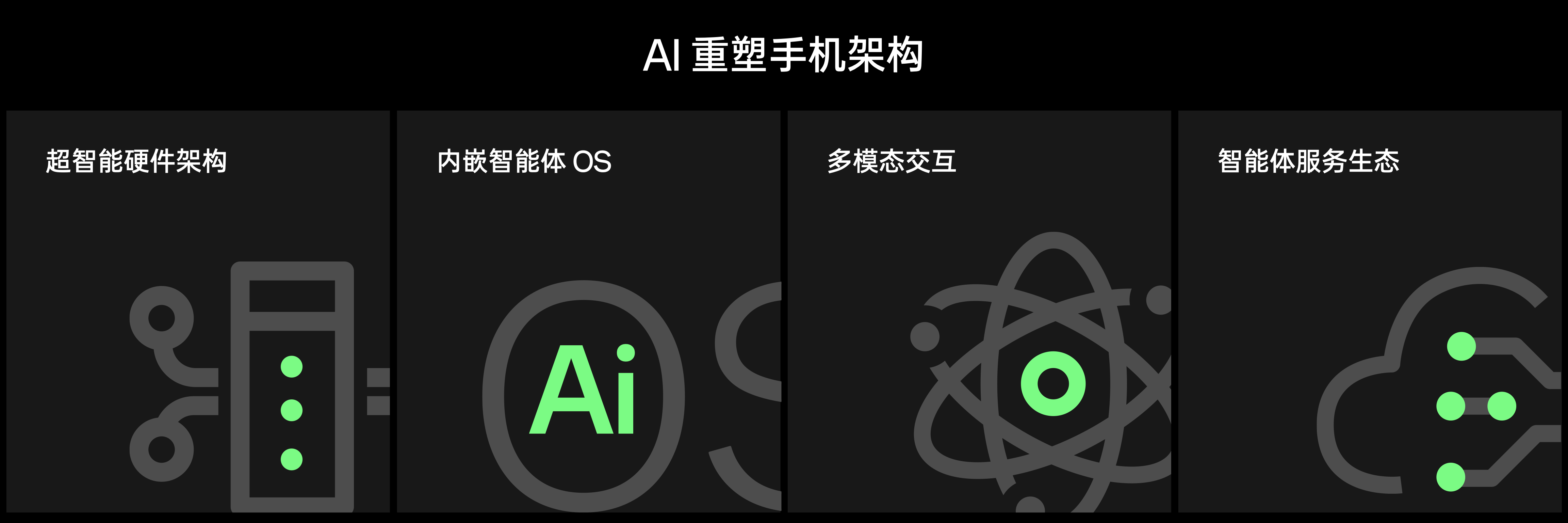
(Photo source: OPPO)
Another On the other hand, IDC is very optimistic about the development prospects of AI mobile phones. The "White Paper" believes that AI mobile phones will sell 37 million units in China in 2024, and it is expected to ship 150 million units by 2027, accounting for more than 50% of the market.
In addition, the emergence of AI mobile phones can also continue to promote an arms race in the industry chain, or a configuration race. For example, the minimum requirement for running memory of an AI phone is 16GB, which means that 16GB will become the benchmark for AI phones, and the larger the memory capacity, the better; in addition to memory, screens, batteries, cameras, etc. will also be affected by AI Joining becomes more necessary to upgrade.
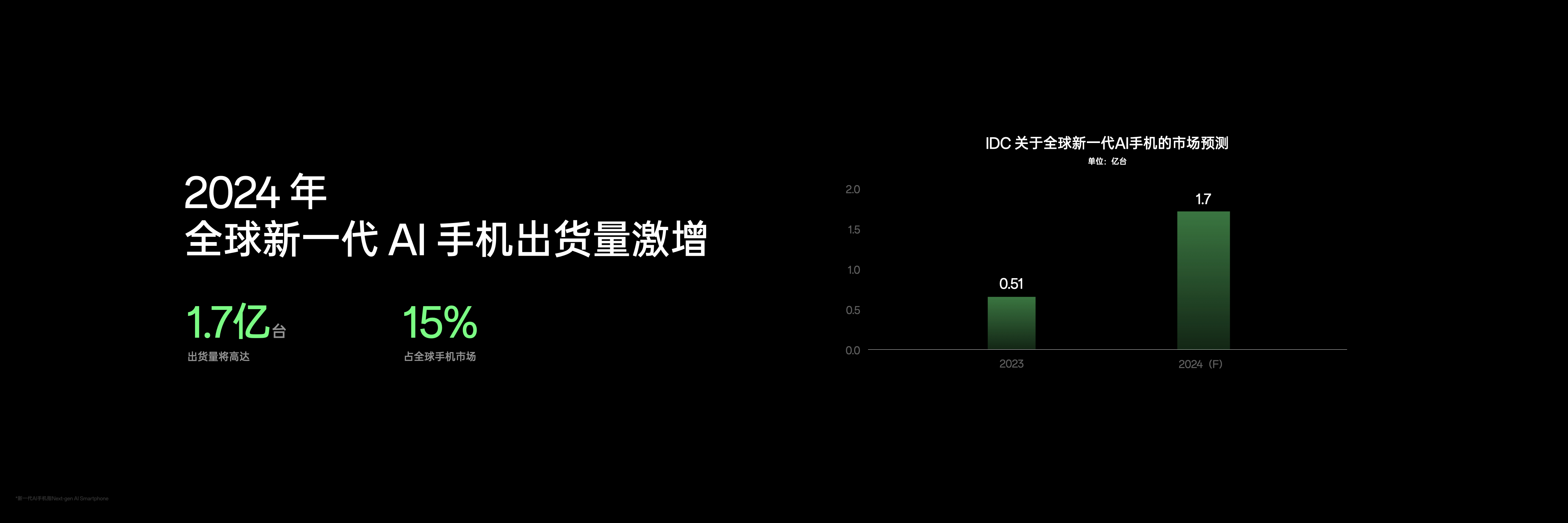
(Photo source: OPPO)
According to the above definition, OPPO The Find X7 series of mobile phones released not long ago are out-and-out "AI mobile phones", and AI functions such as image removal have also received a good response. It may be due to the good response of the Find X7 series, or it may be due to the booster injected by IDC. In short, OPPO has decided to go further and further on the road of AI mobile phones.
At the same time, in addition to telling us what OPPO is “preparing to do”, the conference also showed the results they have already done.
There is no turning back on the road to AI
As perhaps the most determined manufacturer on the market to promote AI mobile phones, OPPO’s current layout can be divided into three aspects.
The first is the product side. Focusing on the "four major characteristics" mentioned above, OPPO believes that the essence of mobile phones needs to be innovated, and thus proposes two dimensions of innovation, namely smart OS. Innovation and hardware platform innovation.
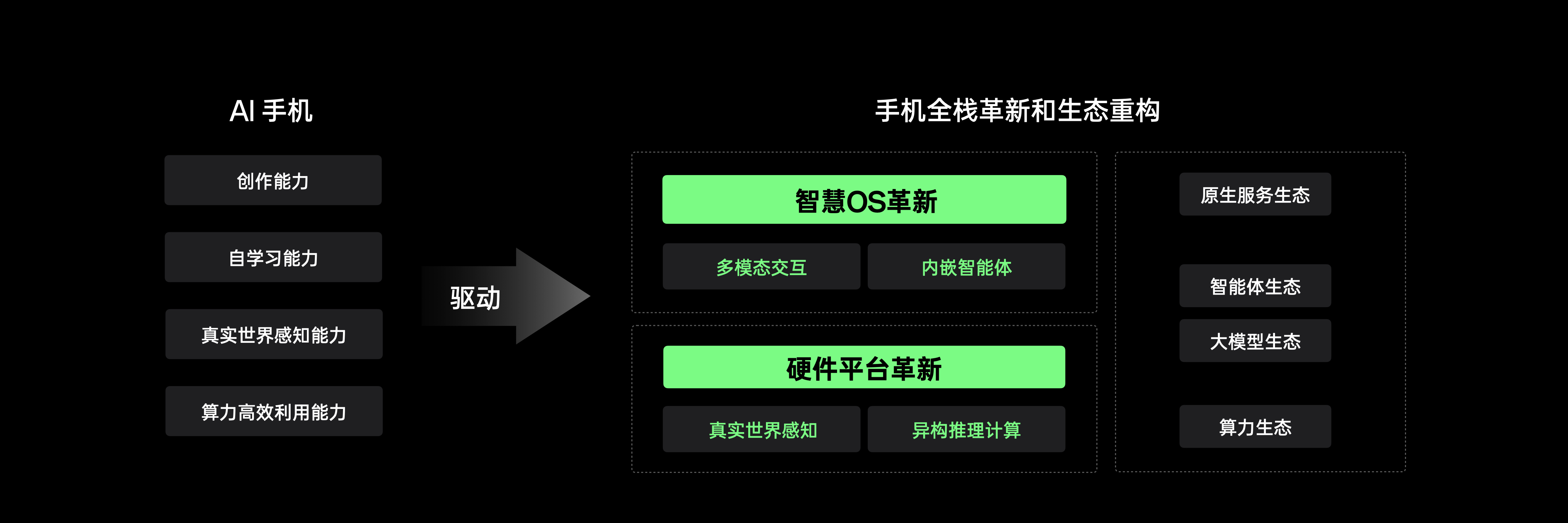
(Photo source: OPPO)
The so-called “smart OS” Naturally, it is different from traditional OS. Its main features are multi-modal interaction and embedded intelligence. Xiaolei tried to explain that multi-modal interaction refers to the integration of multi-modal large models in mobile phones, changing the single-modal interaction of previous mobile phones that "can only recognize text when inputting text, and can only recognize speech when inputting voice".
As for embedded intelligence, it refers to various AI services, such as summary generation, schedule organization, automatic ticket purchase, etc., that are integrated into the "intelligent agent" In , one subsystem can complete multiple problems, and users can customize the "intelligent body", and the mobile phone is our assistant and housekeeper.
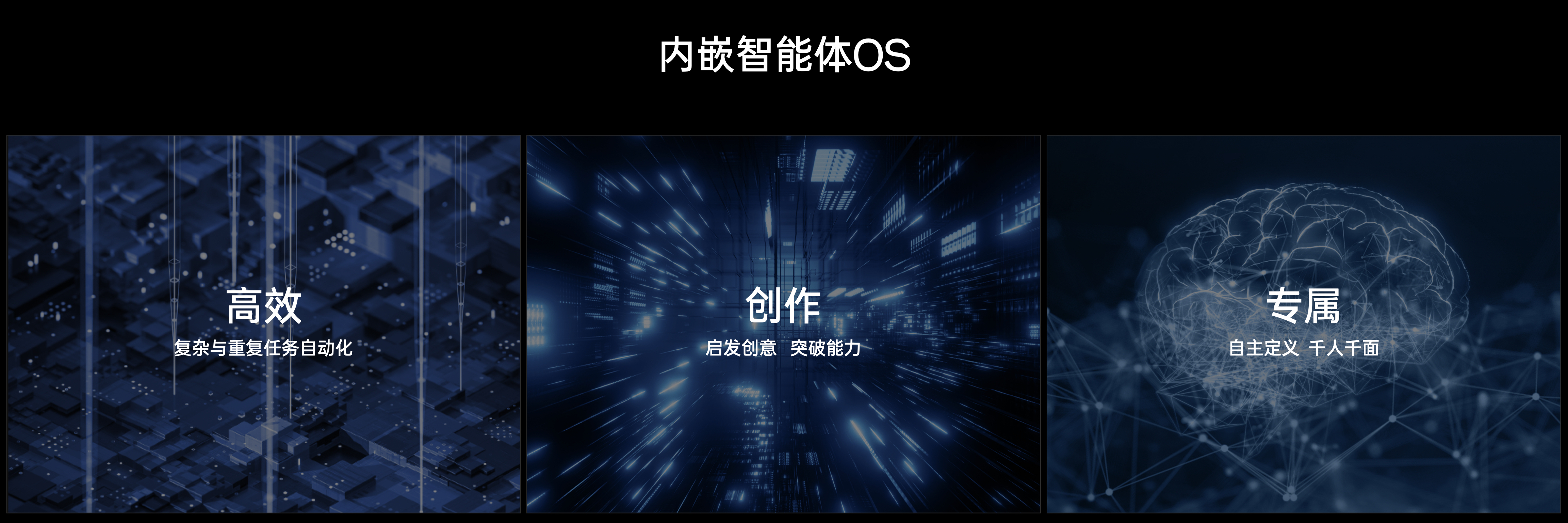
(Picture source: OPPO)
To be honest, for general For users, these concepts seem somewhat vague. This is because the entire concept of AI mobile phones is still in its early stages. There are many metaphysical and defining things, and there are few real applications and scenarios.
As more services and applications are launched in the future, I believe users will have a clearer understanding of these concepts. You might as well look forward to what OPPO and other manufacturers will have in the future. AI surprise”.
In contrast, the hardware platform innovation mentioned by OPPO will be easier to understand. Simply put, it is to deploy high computing power on the mobile phone through cooperation with upstream manufacturers. Hardware to meet the needs of AI computing.
In addition, mobile phone manufacturers must also take more into account the needs of AI computing to deploy heterogeneous reasoning capabilities during the adaptation development process. These tasks will be carried out by upstream and downstream industries. The chain is completed together.
After talking about the product end, the next step is the strategic end. What is mainly mentioned here is the "1 N Smart Body Ecological Strategy" proposed by OPPO in response to the trend of AI mobile phones, which can also be regarded as a reference to The positioning of AI capabilities is reorganized.
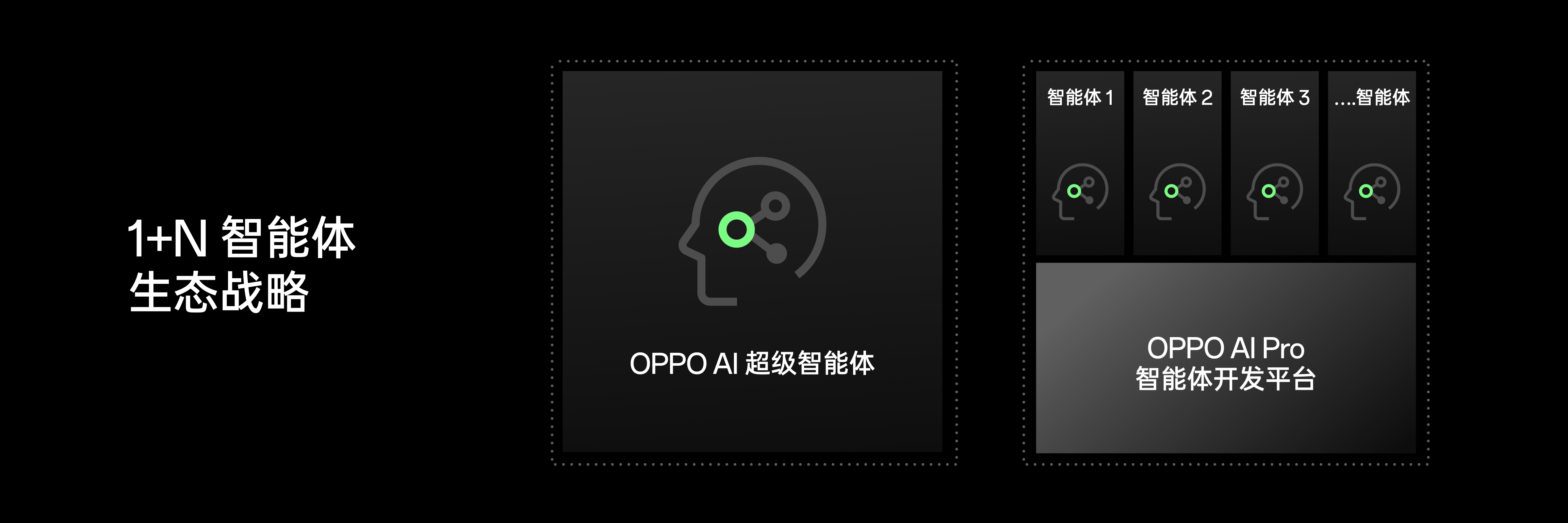
(Photo source: OPPO)
The focus of this strategy is To build an ecosystem, the "1" in it refers to the OPPO AI super intelligence. It should be noted that the so-called "intelligent" cannot be directly equated with a mobile phone. We can understand the agent as an intelligent subsystem, which can grasp the user's preferences and key data, and can accurately understand and predict user intentions. The agent is the core of the OPPO AI ecosystem.
The so-called "N" refers to a series of services built around intelligent agents. OPPO will launch the "AI Pro Intelligent Agent Development Platform" to help all users ( Or even ordinary users) quickly generate services around the agent, thereby helping us to personalize AI phones faster and better.
Finally, I call OPPO’s deployment the “logistics end”. What I want to talk about here is the just-announced OPPO AI Marina Bay Data Center.
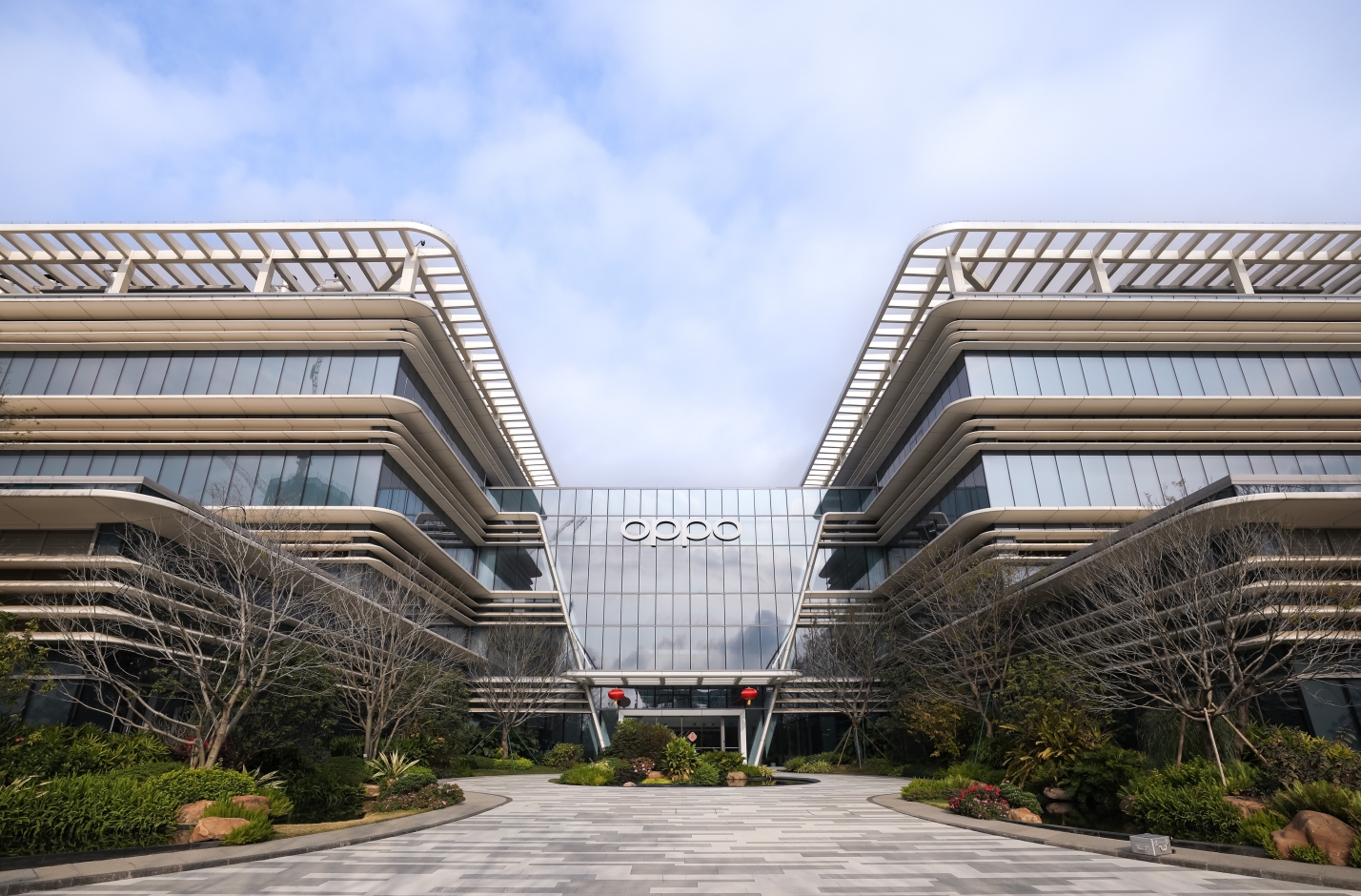
(Photo source: OPPO)
Liu Zuohu revealed that he founded AI The original intention of the center is to integrate the AI teams from different departments within the group for unified management and centralized development to maximize the efficiency of AI development. OPPO introduced that this AI data center can support AI training with hundreds of billions of computing power and support ultra-low latency of backbone network links as low as 2 milliseconds. Its specifications are basically comparable to the AI data centers of large technology companies.
OPPO itself has invested a lot of energy in large AI models. For example, the Andes large model launched in 2020 already has very good knowledge and encyclopedia capabilities. Nowadays The establishment of the AI Center emphasizes that OPPO will continue to delve into the field of AI.
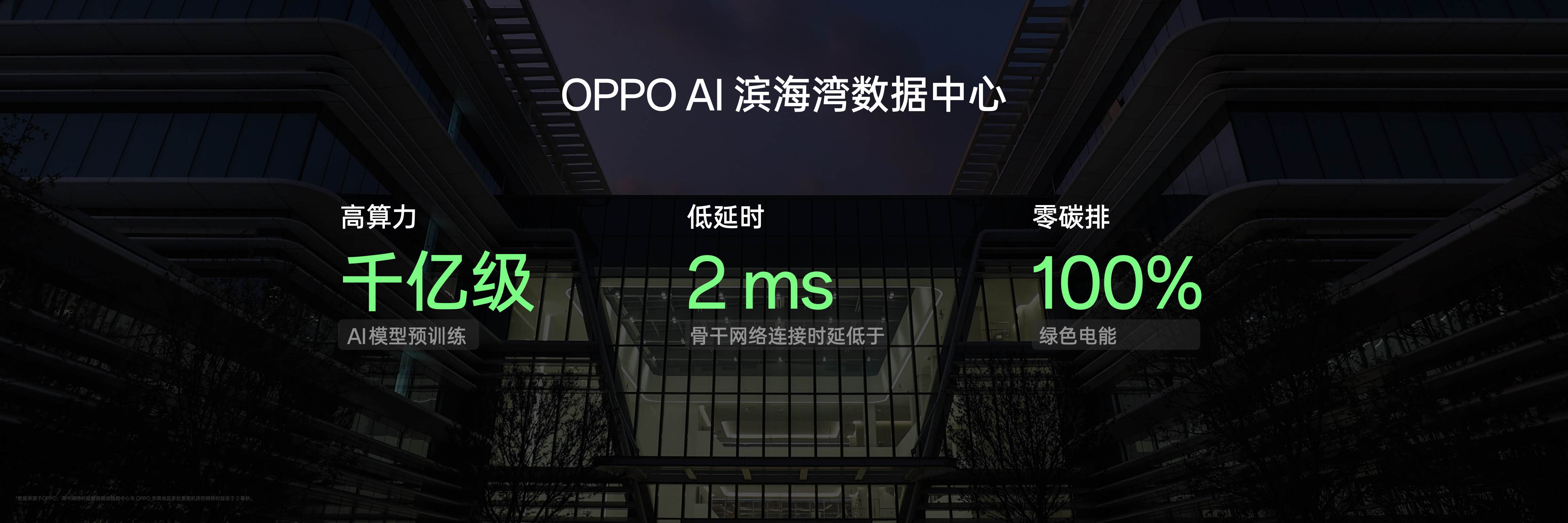
(Photo source: OPPO)
In summary It is said that OPPO has only made clear their determination to dig deeper into AI through a series of activities, and we all know that it is not so fast to see the results.
At this stage, due to the limitation of computing power, the large model capabilities that smartphones can achieve are still relatively limited. The effect achieved is compared with killer large models such as GPT4.0 and Sora. There are also obvious gaps, but I believe that the arrival of large models can indeed give smartphones a new look.
The current limited scenarios, such as phone assistants, image restoration, etc., are enough to prove that the addition of large models and the arrival of AI are changing the experience of using smartphones. Just like most people who have experienced using GPT to check information feel that searching Just like the engine is no longer easy to use, market education does take time, and education will always be completed quietly. By then, all that will be left for laggard companies will be regrets.
The above is the detailed content of Announced new AI strategy, OPPO wants to be the vanguard in the era of AI mobile phones. For more information, please follow other related articles on the PHP Chinese website!
Related articles
See more- Training BERT and ResNet on a smartphone for the first time, reducing energy consumption by 35%
- vivo is about to release a large self-developed AI model, setting off a revolution in smartphone experience
- Lu Weibing asked questions late at night, Xiaomi 14 popularity soared
- Xiaomi Mi 14 is equipped with a powerful local AI large model: the AI photo-realistic photos are amazingly realistic!
- Xiaomi Mi 14 Ultra renderings exposed, this year's most advanced Xiaomi mobile phone is about to be released!

